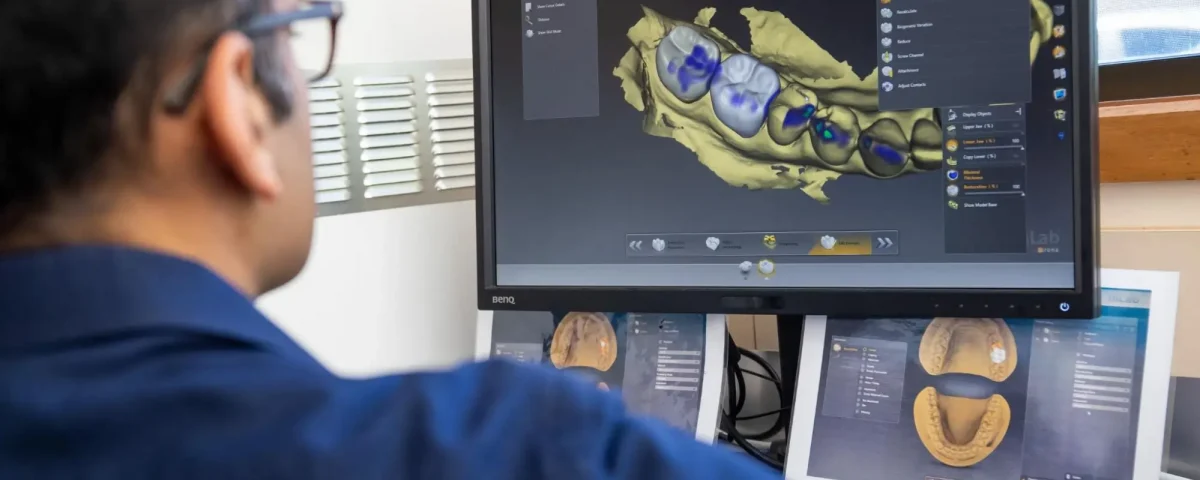Is a Dental Crown the Solution for You?

A tooth crown, also known as a dental crown or tooth cap, is a versatile dental restoration that can address various dental issues. It restores strength, functionality, shape, and size to a tooth while improving its appearance.
In addition to discussing the benefits and purposes of dental crowns, we will explore the dental crown procedure, associated risks, and considerations regarding dental crown cost and materials.
When Might You Need a Crown?
There are several situations in which a dental crown may be necessary.
- It can protect a weakened or cracked tooth, holding it together and preventing further breakage.
- If you have an old, broken, or failing tooth filling, a dental crown can replace it and restore the tooth’s integrity.
- If you have a tooth that has already broken or worn down due to grinding, a crown can restore its length and functionality.
- Dental crowns are also used to cover and support a tooth with a large filling when there isn’t much natural tooth structure left.
- Additionally, they can be used for cosmetic modifications, such as closing spaces between teeth or reshaping and rotating them.
- Dental crowns play a crucial role in holding dental bridges in place and covering dental implants.
- They are also recommended to restore strength to a tooth that has undergone root canal therapy.
Dental Crown Materials and Costs
In Australia, various dental crown materials are available, including porcelain, porcelain-fused-to-metal, gold alloy, and zirconia crowns. Most crowns can be similar in price, but gold crowns are dependent on the price of gold, and vary.
Fundamentally, dental crown costs vary depending on the material used and the complexity of the procedure, and patient preference. It’s important to note that dental crown prices in Australia may differ across regions: a dental crown cost in Geelong may vary compared to other areas.
We recommend contacting our clinic for more information.
The Dental Crown Procedure and Risks
The dental crown procedure typically involves several steps to ensure a proper fit and function. Dental crowns can’t be implemented in one visit, but we can facilitate 2 appointments in one day, 1-3 hours apart where required, subject to patient and clinic availability.
- Firstly, the tooth is prepared by removing a layer to accommodate the crown.
- An impression of the tooth is then taken to guide the dental technician in creating a crown that matches the size and colour of the original tooth, ensuring a seamless blend with the surrounding teeth.
- While the final crown is being made, a temporary crown may be placed.
- In the subsequent appointment, the permanent crown is fitted using dental adhesive cement.
Although the dental crown procedure is generally safe, there are potential risks and complications to be aware of. These may include: infection, sensitivity, crown displacement, or allergic reactions.
To minimise these risks, it’s essential to choose an experienced dentist, maintain good oral hygiene, and promptly address any concerns that arise after the procedure.
Lifespan and Alternatives
The lifespan of a dental crown can vary depending on the material used and the patient’s oral hygiene habits. It will also depend on an individual’s tooth condition, as well as lifestyle and diet. Our clinicians supply care instructions and recommendations, but we do not guarantee lifespans of our crowns, it’s about individual cases.
But, with proper care, dental crowns can last anywhere from 5 to 15 years; but there’s rarely an issue with the crown, more with the patient’s aftercare of the crown. Regular dental check-ups, diligent brushing and flossing, and avoiding habits or foods that can damage the crown will help prolong its lifespan.
It’s also important to note that there are alternative treatments available, such as dentures, partial dentures, implants, dental fillings, inlays, onlays, or dental bonding, depending on the extent of the tooth’s damage.
Consulting with a dentist will help determine the most appropriate and cost-effective treatment option for each individual case, but delaying consultations can complicate solutions.
Considering Dental Crown Costs
Dental crown costs in Australia can vary, and it’s essential to research dental practices and compare prices. Myer St will provide treatment plans/estimates for various options available at time of consultation. Consultation fees may apply.
Payment plans can be accessed for eligible patients through third party financial institutions, such as SmileRight, and additional fees may apply.
Private dental clinicians, such as Myer Street Dental, also provide care to eligible patients through the Victorian Emergency Dental Scheme (VEDS) and Victorian General Dental Scheme (VGDS).
Additionally, private dental insurance plans may partially or fully cover treatments or procedures.
Choosing the right practitioner for your dental crowns is important, as with anything if you aren’t happy with your current dentist, do some research, talk to others, as you need to find the right practitioner and clinic for you.
If you think that a dental crown is a good solution for you, we have flat fees for consultation and will be more than happy to assist with ensuring that you are getting the best dental care and solution for you.
Note: The information in this blog is for guidance purposes only, every patient’s oral health care and conditions are different. A full diagnosis is required to be able to offer specific advice for any individual.
Talk to us today!
